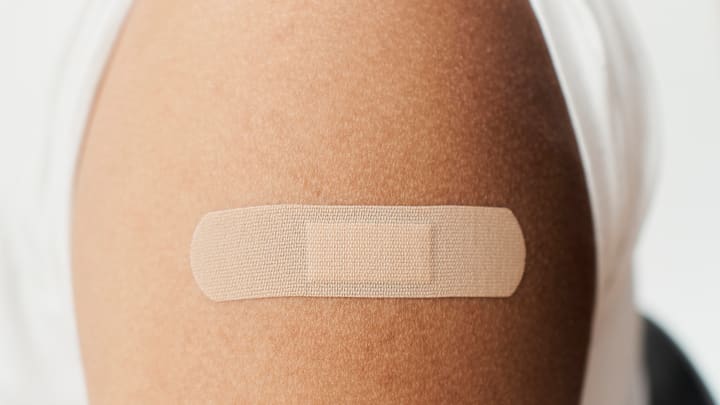“Ripping off the Band-Aid” is a well-worn idiom. When you want to break bad news, it’s better to just do it quickly; the same goes for anything prompting any kind of physical or emotional pain.
But does ripping off a literal bandage quickly really provide benefit? According to one study, yes.
In research published in The Medical Journal of Australia, 65 students at James Cook University in Queensland were recruited to examine which approach is less painful: removing bandages slowly or quickly. Participants used one of two methods and then assessed their discomfort on an 11-point pain scale. (It doesn’t go to 11; rather, someone can report 0 for no pain at all.)
Those who yanked the bandage off reported an average 0.92 pain score. Those who peeled slowly over a two-second duration were deemed masochists who tallied an average score of 1.58.
Conclusion: It’s better to just rip it off.
Researchers tried the dressings on three different sites: the hand, deltoid (shoulder), and ankle and also assessed the site for body hair. While the body part didn’t matter, those with lower body hair counts tended to report less significant discomfort. So did people who reported a preconception that slow removal would be more painful than rapid doffing of the bandage.
The paper couldn’t account for other variables, like skin tenderness as the result of a wound or varying adhesive strength depending on the type of bandage used. (The study used Band-Aid brand bandages.) Ideally, a glue that sticks to skin but offers less resistance upon removal would be ideal, and some researchers at MIT and Brigham and Women’s Hospital in Boston announced in 2022 they were moving toward that goal. For now, it’s probably better to just rip it off.
Have you got a Big Question you'd like us to answer? If so, let us know by emailing us at bigquestions@mentalfloss.com.
Discover More Fascinating Big Questions Below:
A version of this article was originally published in 2023 and has been updated for 2024.
